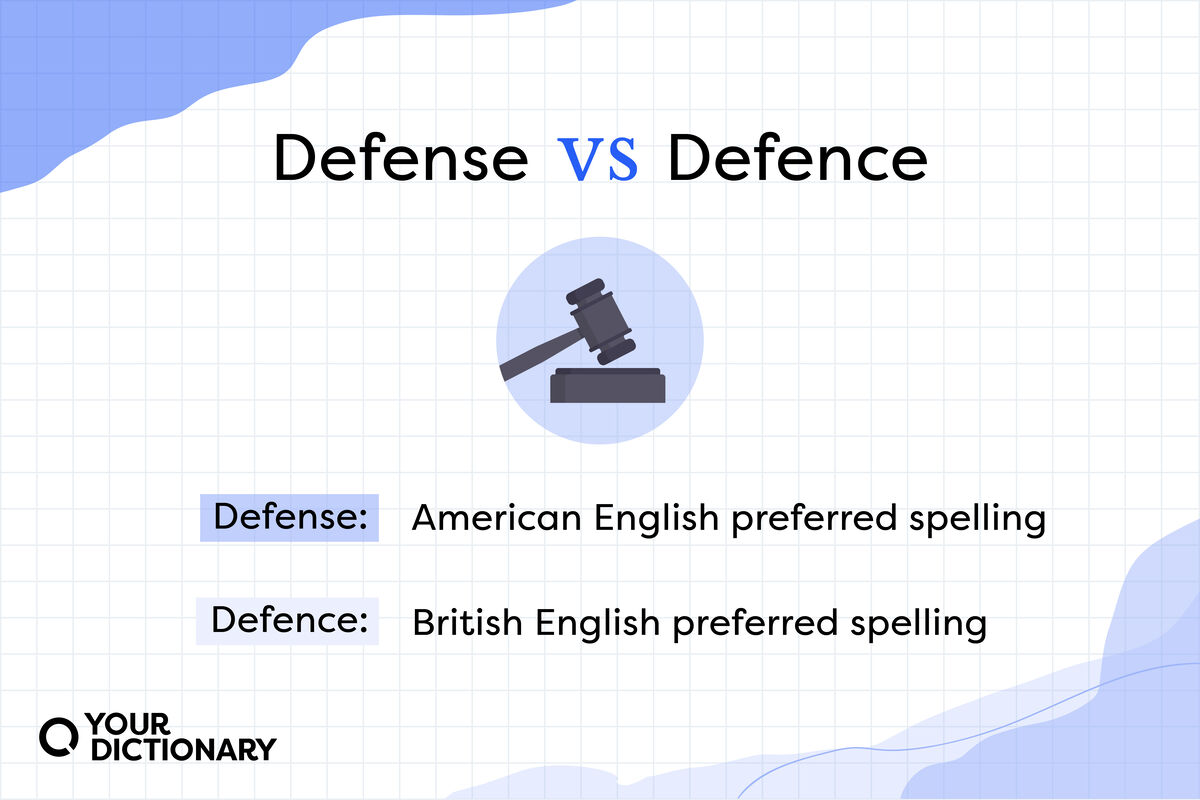
One of the most frequently repeated lines among coaches, announcers, and aficionados across all sports is, “The best offense is a good defense.” It’s one of those weird little phrases that has seeped its way into everyday life, from video games to boardrooms, and while you could argue the merits of a good offense versus a good defense, the real question plaguing everyone’s mind is: Is it spelled defense or defence? As it turns out, both spellings are correct.
Is It “Defense” or “Defence”?
Both defense and defence are correct spellings for the same concept. The one that you choose largely comes down to where you live.
Defense is the preferred spelling for those who write American English. People who write British English, which includes those in the UK, Ireland, Australia, and Canada, are more likely to use defence.
- The team wasn’t scoring well, but their incredible defence/defense helped them win the game.
- We had trouble teaching them how to move on the court on defence/defense.
- I came to the defence/defense of my friend, who had done nothing wrong.
- The plaintiff didn’t have a good case against the defence/defense.
- The statement came out of the Ministry of Defence.
- The Department of Defense was expected to address the press within the hour.
Inflected Forms of “Defense” and “Defence”
That regional spelling still carries over in most cases when you add a suffix to the end of defense and defence. For example, defenseless and defenceless still maintain their regional spellings.
- You wouldn’t harm a defenseless kitten.
- You wouldn’t harm a defenceless kitten.
However, things get a little weird for any suffixes that start with “i.” In that case, regardless of regionality, both American and British English spellings revert to using the “s.” For example:
- You don’t need to get defensive.
- His actions were indefensible.
What Does “Defense” or “Defence” Mean?
Defense and defence are nouns that can mean a few different things based on the context.
- the act of resisting an attack
- (in sports) the action and strategies involved with defending oneself or one’s goal
- (in law) the case presented by or on behalf of the party being tried
Some people may use defense or defence as a verb, but that is extremely rare, even in sports, where most people will favor the easy and convenient verb defend.
How To Pronounce “Defense” and “Defence”
Defense and defence can have some interesting variations based on the application. For both words, the pronunciation for most things is “duh-FENSE” or “dih-FENSE” with the stress on the second syllable.
However, the biggest variation comes with sports. While British English speakers still use the general pronunciation rules, even when it comes to defenders on the field, American English speakers use “DEE-fense” (stress on the first syllable) when referring to sports. This is why you might see signs with the letter “D” and the picture of a fence in a sports crowd.
Note that that pronunciation applies to team sports and specifically to the schemes, actions, and strategies occurring on the court or field.
- Their lockdown defense (“DEE-fense”) made it impossible for the other team to score a single point.
- The boxer had spent months preparing for his fourth defense (“dih-FENSE”) of his championship belt.
British vs. American English: Other Words With “C” and “S” Variations
There are several other British English words that use a “c” where American English uses an “s,” including offence/offense and pretence/pretense. Vice versa, there's practice (American English) and practise (British English).
British English Words That Use Both Variations
There are a few instances where British English will use both the “c” and “s” variations for different purposes. For example, British English includes both license and licence. Licence is the noun form, while license is the verb form. In American English, license serves as both the noun and verb.
| British English | American English | |
| Noun | I nearly forgot to bring my driver’s licence. | I nearly forgot to bring my driver’s license. |
| Verb | She licensed the brand name for a new company. | She licensed the brand name for a new company. |
Similarly, British English uses practice as a noun and practise as a verb where American English uses practice for both.
| British English | American English | |
| Noun | Coach had us running sprints during basketball practice. | Coach had us running sprints during basketball practice. |
| Verb | My mum was mad that I was practising my trumpet so loud. | My mom was mad that I was practicing my trumpet so loud. |